The views expressed in our content reflect individual perspectives and do not represent the authoritative views of the Baha'i Faith.
The sacred writings of Baha’u’llah, who lived from 1817 to 1892, extend from 1852, the year of the inception of the Baha’i Faith, to 1892, the year of his ascension – 40 years of revelation.
Both the Faiths of the Bab (1819-1850), the prophet who paved the way for the coming of Baha’u’llah, and of Baha’u’llah are characterized by an unprecedented ocean of revelatory outpouring.
That is why Baha’i scripture constitutes almost a library, rather than one or a few books.
In addition, there is no historical or objective doubt about the authenticity of these writings. The writings of Baha’u’llah by himself would be the equivalent of one hundred books, and the Baha’is have the originals. These writings address all kinds of issues in a variety of styles. However, despite the amazing diversity and plurality of Baha’u’llah’s writings, they all represent a grand divine order and unity:
Incline thine ear and hear! This is the voice of My pen raised before mystics, then divines, and then kings and rulers. – Ishráqát, p. 260.
This statement of Baha’u’llah unveils a unique order and unity. As he notes, he revealed his writings in three stages. The first stage of his revelation Baha’u’llah addressed to the mystics, the second to the divines and clerics, and the third to the kings and rulers of the world. This order is not accidental. The logical and dialectical structure of this order is itself another testimony to the primordial unity, originality, novelty and purity of Baha’u’llah’s consciousness.
In this reflection we will explore these three stages, the corresponding principle announced by each of them, and the logical connection and unity of all three.
The principle explained in the first stage is the mystical consciousness – that reality is ultimately spiritual. The second stage emphasizes historical consciousness and extends that dynamism to the realm of religion and the word of God. The third principle in the final stage of Baha’u’llah’s revelation emphasizes global consciousness and its twin requirements of the oneness of humankind and universal peace. Together, these three principles – mystical, historical and global – constitute an organic unity, and this unity defines the uniqueness of Baha’u’llah’s message.
1. Mystical Consciousness
The first stage of Baha’u’llah’s revelation, from 1852 to 1860, took place during much of his exile in Baghdad. Some of his principal works from this stage – The Hidden Words, The Four Valleys, The Ode of the Dove, and The Seven Valleys – emphasize the spiritual interpretation of reality.
According to the writings of Baha’u’llah, reality expresses ultimately diverse manifestations of divine names and attributes. All beings therefore are sublime mirrors in which the divine revelation is reflected and made manifest. This radical affirmation of the sacredness of all beings and the cosmic solidarity and unity of all things is based upon the idea that the ultimate truth of all beings is the very divine revelation that is enshrined within their inmost hearts. History, then, is a spiritual journey towards the realization and unfoldment of this all-encompassing inherent divine revelation in the lives of human beings. In Baha’u’llah’s The Hidden Words we read:
O Son of Man! Thou art My dominion and My dominion perisheth not, wherefore fearest thou thy perishing? Thou art My light and My light shall never be extinguished, why dost thou dread extinction? Thou art My glory and My glory fadeth not; thou art My robe and My robe shall never be outworn. Abide then in thy love for Me, that thou mayest find Me in the realm of Glory.
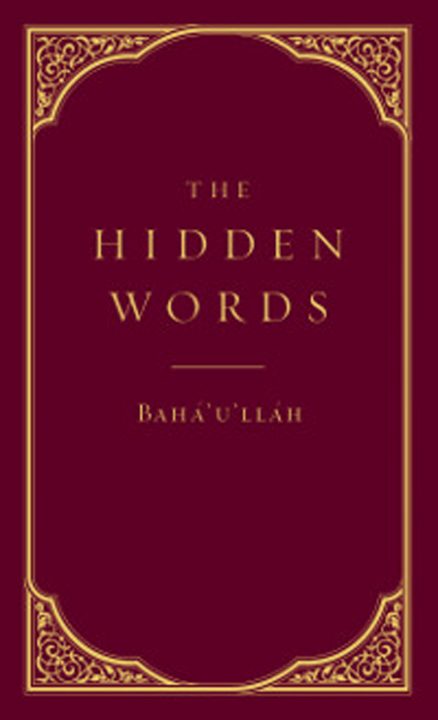
The principle of the spiritual nature of all beings differentiates the viewpoint of Baha’u’llah from all materialistic worldviews and all social theories that divest sociocultural order from spiritual values and moral orientation. Thus, according to Baha’u’llah, one of the most important foundations of social order is the commitment of society to moral and spiritual values.
Such a spiritual orientation means that we should observe reality as an interconnected unity, rather than a set of fragmented, independent, solid objects. The truth of everything is the divine revelation, meaning that all beings are interconnected and one. However, this same spiritual understanding of existence implies an opposite principle as well. Consciousness is always a unique and individual reality. Therefore, humans as independent spiritual beings all have the duty to think for themselves. The metaphysics compatible with this mystical consciousness – unity in diversity – calls for an ever-increasing unification of the planet and all of its peoples.
2. Historical Consciousness
Although Baha’u’llah’s first principle sequesters his message from any materialistic worldview, the second constitutive principle of his worldview differentiates his vision from all religious forms of traditionalism.
This second principle is the principle of historical consciousness or the historicity of life. In the second stage of his revelation, from 1860 to 1867, during the last years of his stay in Baghdad and continuing during his banishment to Istanbul and Adrianople, Baha’u’llah spoke in terms of issues that relate to sacred scriptures.
Here the divines and the learned of various religious persuasions became the direct recipients of his writings. Chief among these works are the Book of Certitude and the New Wondrous Book. This dynamic conception is particularly relevant to the realm of human culture and society.
Social reality is a perpetually advancing phenomenon. Such dynamism applies not only to the realm of human cultural institutions but also to the realm of the revelation of divine word itself. Baha’is call this all-encompassing and radical affirmation of historical consciousness in the writings of Baha’u’llah the principle of progressive revelation.
Culture and society are defined by perpetual change and transformation, which means that the revelation of the eternal Will of God becomes something historical and dynamic as well. Baha’u’llah, therefore, sees in all diverse religions one and the same eternal truth. That creative divine Will reflects itself in the form of new laws and doctrines, in different ages, in accordance with the level of the development of humanity and the specific needs of all people at that particular stage of advancement. Thus for Baha’u’llah, all prophets of God represent one and the same eternal reality, who appear in different ages as diverse and historically-specific human persons with different laws as required by the material and spiritual development of society in that stage of humankind’s development. In other words, the message of this second principle is the unity in diversity of all religions:
The All-Knowing Physician hath His finger on the pulse of mankind. He perceiveth the disease, and prescribeth, in His unerring wisdom, the remedy. Every age hath its own problem, and every soul its particular aspiration. The remedy the world needeth in its present-day afflictions can never be the same as that which the subsequent age may require. Be anxiously concerned with the needs of the age ye live in, and center your deliberations on its exigencies and requirements. – Gleanings from the Writings of Baha’u’llah
Although historical consciousness is present in the philosophical systems of a number of philosophers like Hegel and Marx, Baha’u’llah’s principle is qualitatively different. First, this historical dynamic never ends in an ultimate historical state. Thus, for Baha’u’llah, even the truth of his own revelation is relative to the present stage of development of humanity, and therefore his revelation is not the last divine revelation. Divine revelation, on the contrary is eternal and everlasting. Secondly, Baha’u’llah applies this historical logic not only to the realm of human culture, but also to the realm of the revelation of divine word as well.
3. Global Consciousness
The unity of the first and second principles implies the third principle of the worldview of Baha’u’llah. The two first principles together declare the necessity of the renewal of spiritual order at this stage of the maturation of humanity in ways that accord with the fundamental challenge of historical development in this age.
The third principle of Baha’u’llah’s worldview is the principle of the oneness of humankind and the imperative of universal peace. According to this Baha’i vision of the world’s future, an effective and just solution to diverse problems of humanity at this stage of its development requires the adoption of a global consciousness that is based upon the fundamental premise of the essential unity of the entire human race.
This global approach is not simply a cult of brotherly love or a utopian fantasy. Emphasized through his letters to the rulers of the world in 1867-1868, and elaborated throughout the rest of his life, Baha’u’llah’s third principle calls for the emergence of a new culture of peace and unity, a new consultative and democratic international structure, and new consultative and just social institutions. Baha’u’llah’s teachings aim to create a social order defined by the principle of unity in diversity:
That one indeed is a man who, today, dedicateth himself to the service of the entire human race. The Great Being saith: Blessed and happy is he that ariseth to promote the best interests of the peoples and kindreds of the earth. … It is not for him to pride himself who loveth his own country, but rather for him who loveth the whole world. The earth is but one country, and mankind its citizens.
Anyone can see the remarkable dialectical nature of these three stages. The first stage emphasizes the abstract and mystical unity of humanity. The second stage negates that abstraction and affirms the historical diversity and the dynamic nature of the spirit. The third stage affirms the concrete, historically-specific unity of humankind.


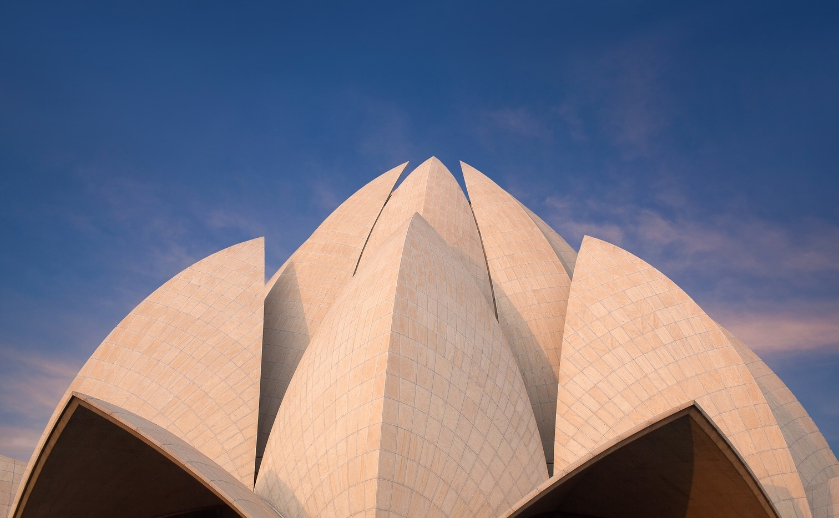
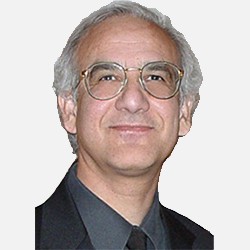

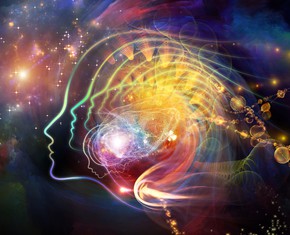
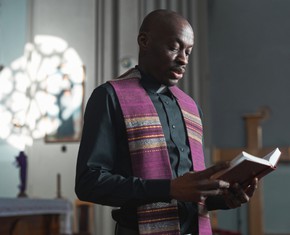









Comments
Sign in or create an account
Continue with Googleor